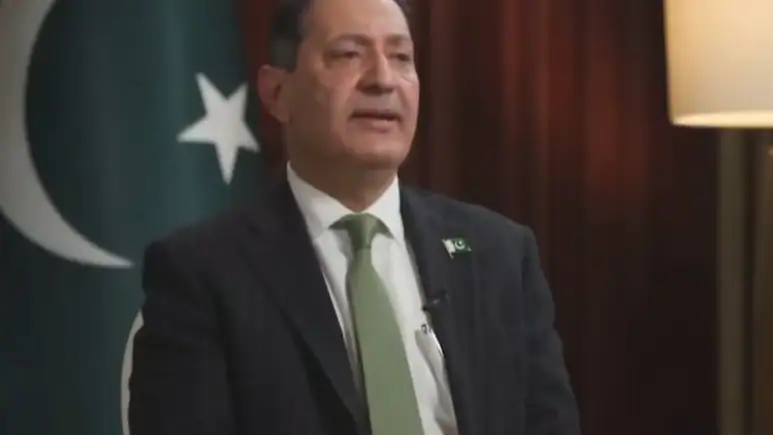Pakistan’s ambassador to Russia has warned that Islamabad could resort to its full military arsenal, including nuclear weapons, if it is attacked by India or if New Delhi disrupts Pakistan’s water supply.

Speaking in an interview with Russian broadcaster RT on Saturday, Muhammad Khalid Jamali, Pakistan’s top diplomat in Moscow, said Islamabad has credible intelligence suggesting that India is planning military strikes on Pakistani territory. “There are some other leaked documents whereby it has been decided to strike certain areas of Pakistan,” Mr Jamali said. “So that makes us feel that this is going to happen and it’s imminent.”
The comments represent one of the most explicit threats of nuclear retaliation made by a senior Pakistani official against India in recent years. “We in Pakistan will use the full spectrum of power, both conventional and nuclear,” he said.
Mr Jamali’s warning follows the April 22 terror attack in Jammu and Kashmir’s Pahalgam, in which 26 people, mostly tourists, were killed. The incident has heightened tensions between the two nuclear-armed neighbours. India has accused Pakistan of harbouring and extending support to terror groups who orchestrated the attack, although Islamabad has denied involvement.
In retaliatory measures, India suspended the Indus Waters Treaty (IWT), a 1960 agreement brokered by the World Bank that governs the distribution of the Indus River and its tributaries between the two countries. This treaty had endured through multiple wars between India and Pakistan and was long viewed as a rare stabilising arrangement in a tense bilateral relationship.
Mr Jamali termed India’s suspension of the treaty as an act of war.
“Any attempt to usurp the water of the lower riparian, or to stop it, or to divert it would be an act of war against Pakistan and would be responded to with full force of power, including full spectrum of power,” he said.
The warning follows Pakistan’s Defence Minister Khawaja Asif remark on Friday during an interview with Geo News, declaring that Islamabad would target any infrastructure India builds on the Indus River in violation of the treaty. “Certainly, if they attempt to build any kind of structure, we will strike it,” Mr Asif said. “Aggression is not just about firing cannons or bullets; it has many faces. One of those faces is [blocking or diverting water], which could lead to deaths due to hunger and thirst,” he added.
Amid talks of nuclear action, Pakistan’s military conducted a test launch of the Abdali surface-to-surface missile on Saturday. The weapon has a range of 450 kilometres and is capable of carrying both conventional and nuclear payloads. According to a statement from the Pakistani army, the launch was intended to ensure “operational readiness”.
The Indian government sees the test as a grave provocation, said sources. There has been no official statement from the Ministry of External Affairs on the test.
On Saturday, India imposed a ban on imports of goods originating in or transiting through Pakistan, and it prohibited Pakistani ships from entering Indian ports. This move was accompanied by instructions to Indian carriers not to call at Pakistani ports. Pakistan reciprocated within hours, announcing its own restrictions on Indian vessels.
Advertisement
The Directorate General of Shipping also issued a directive prohibiting maritime commerce between the two nations. The ban extends to all Pakistani goods, including those routed through third countries. Bilateral trade has been virtually frozen since 2019, when India imposed a 200 per cent tariff following the Pulwama attack.
Other measures announced in recent days include the suspension of postal exchanges, including parcels and letters sent via air or surface transport, and the closure of the Attari-Wagah land border crossing.